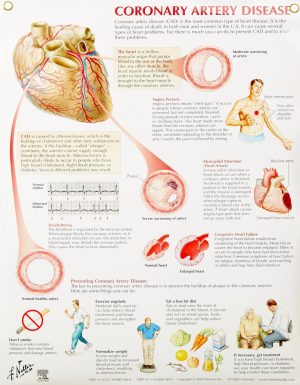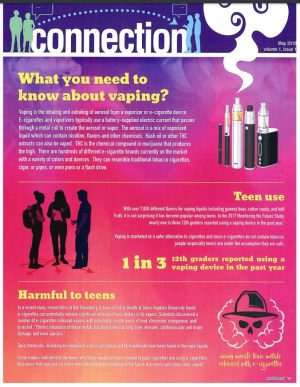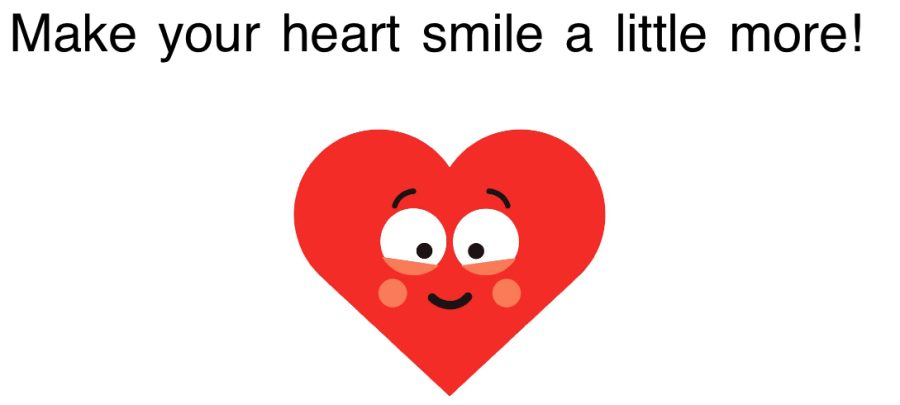Take it to heart
Why teens should be more heart-conscious.
In a study done by the CDC (Centers for Disease Control and Preventions) showed that about 697,000 people in the United States died from heart disease in 2020, making heart disease the leading cause of death in the United States. With this in mind, it’s important for high school students to take proactive steps and measures in order to keep their hearts healthy and happy.
On Jan. 2, Bills safety Damar Hamlin collapsed onto the field and needed to be resuscitated through CPR. His heart attack was sad and hard to stomach but heart attack’s are all too common in today’s world. That’s why it’s important to know CPR in case you need to help save a life.
According to a poll answered by over 65 Norwin students showed that 23 percent of students “knew how to properly administer CPR.” This is up from the national average of just 18 percent.
Healthy exercise and eating is another way that we can help our hearts. With a recommended amount of 60 minutes or more of exercise from the U.S. Department of Health and Human Services, most kids struggle to find the right balance. Many are athletes whose minds do not get the rest they need for the upcoming day because of the stress of not being home until sometimes 9 o’clock. Others who fail to meet the exercise total might be AP or Honors students whose mountains of stress due to the rigor of their courses do not give them the time needed to exercise adequately.
 “Eating good food and getting enough sleep is also key in creating less stress on our hearts and lowering cholesterol; lowering the risk of coronary artery disease,” said Norwin’s school nurse, Mrs. Donna Lafferty.
“Eating good food and getting enough sleep is also key in creating less stress on our hearts and lowering cholesterol; lowering the risk of coronary artery disease,” said Norwin’s school nurse, Mrs. Donna Lafferty.
So what is coronary artery disease and why is it important to know the effects of the disease?

Coronary Artery disease is the most common heart disease, affecting 18.2 million Americans. Coronary artery disease is when the arteries are simply unable to deliver oxygenated blood to the heart. The disease is cause by a build up of “bad cholesterol” or LDL cholesterol and plaque build up. This can totally block the blood flow to the heart in some cases in the large arteries in a heart. Symptoms for this disease will more than likely not come up pre-diagnosis.
Approximately 366,000 people die each year to coronary heart disease, so it’s important to have knowledge of the risk of heart disease and what comes with the effects of having heart disease.
Eating healthy is not always easy. Living in lower class families, all you can afford is all you can afford and most of the time, the cheapest items on the shelf are the most unhealthy.
According to a study that was inducted into the National Library of Medicine, “Prices of a selection of healthier foods (dairy, fruit juice, and frozen vegetables) and unhealthy foods (soda, sweets, and salty snacks) were obtained from 1953 supermarkets across the USA during 2009–2012 and were linked to census block group socio-demographics. Overall, the price of healthier foods was nearly twice as high as the price of unhealthy foods ($0.590 vs $0.298 per serving; healthy-to-unhealthy price ratio of 1.99). This trend was consistent across all neighbourhood characteristics. After adjusting for covariates, no association was found between food prices (healthy, unhealthy, or the healthy-to-unhealthy ratio) and neighborhood SES.”
The concern for our heart’s is one that we all have at some point in our lives. Starting to take action to prevent diseases down the line can start today. Eating healthy by cutting down on saturated fats, lowering sodium and sugar will help not only make you feel better in the moment, but will make your heart smile for a little longer:).

In addition to diet, heart health is also affected by vaping. According to the FDA, “In 2022, about 1 in 10 or more than 2.5 million U.S. middle and high school students currently used e-cigarettes (past 30-day). 14.1% (2.14 million) of high school students and 3.3% (380,000) of middle school students reported current e-cigarette use.”
Vaping can cause cholesterol deposits in arteries which are likely to become more unstable and can rupture over time according to unitypoint.org.
So what does that mean exactly? Cholesterol deposits are skin growth due to the build up of cholesterol and can happen anywhere on the body. If these deposits become ruptured they can lead to blood clots which induce heart attacks and strokes.
With all of that to take in to consideration, let’s be nicer to our hearts. Hearts work the hardest of any organ and giving it some time to focus on you and easing the stress of your heart will help you long term. We all get stressed and need some time to relax, and next time you do so, make sure to think of your heart as well.

Anthony is a Senior at Norwin High School and is the President of the newspaper. This is his second year as a part of the staff as he continues his role...







